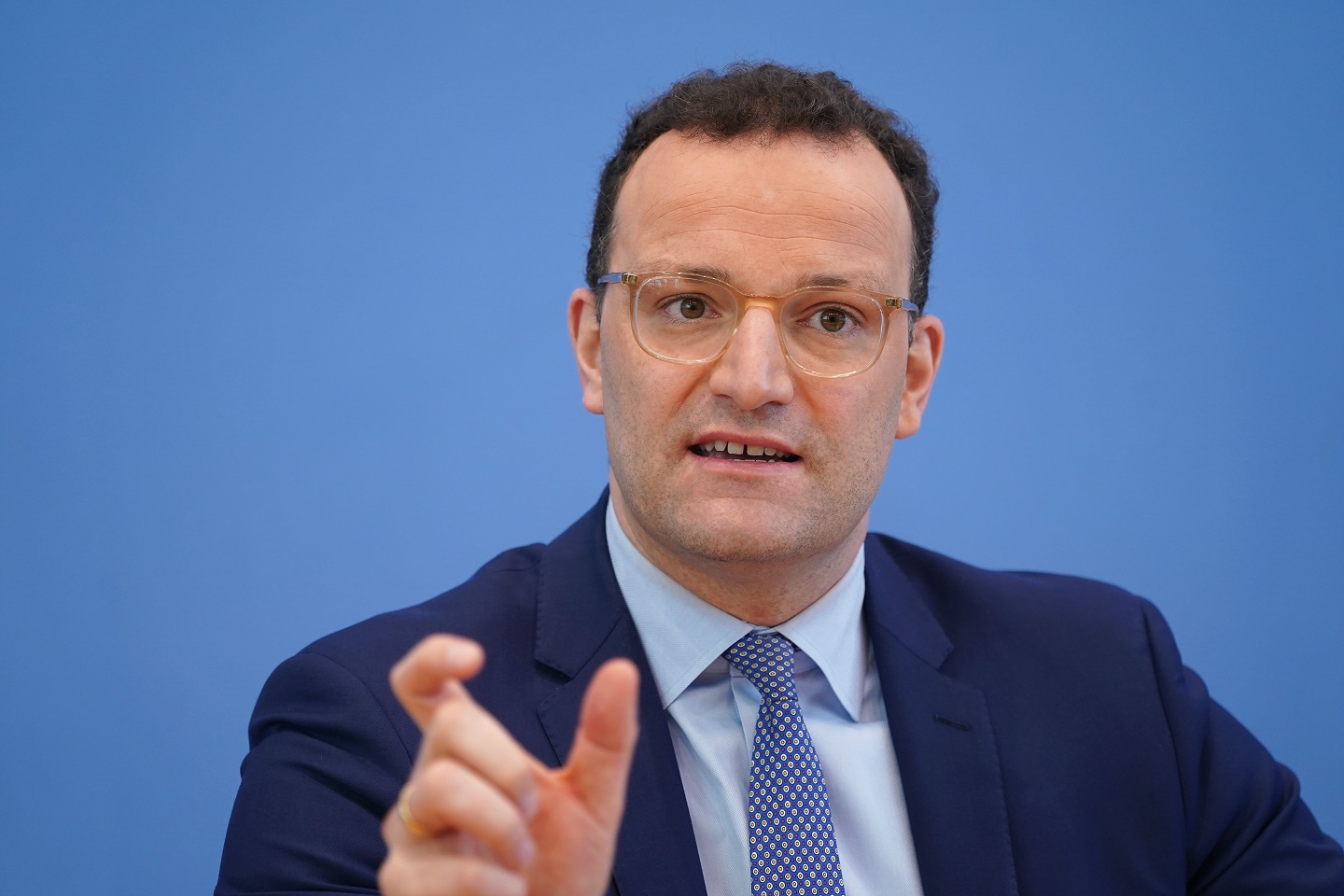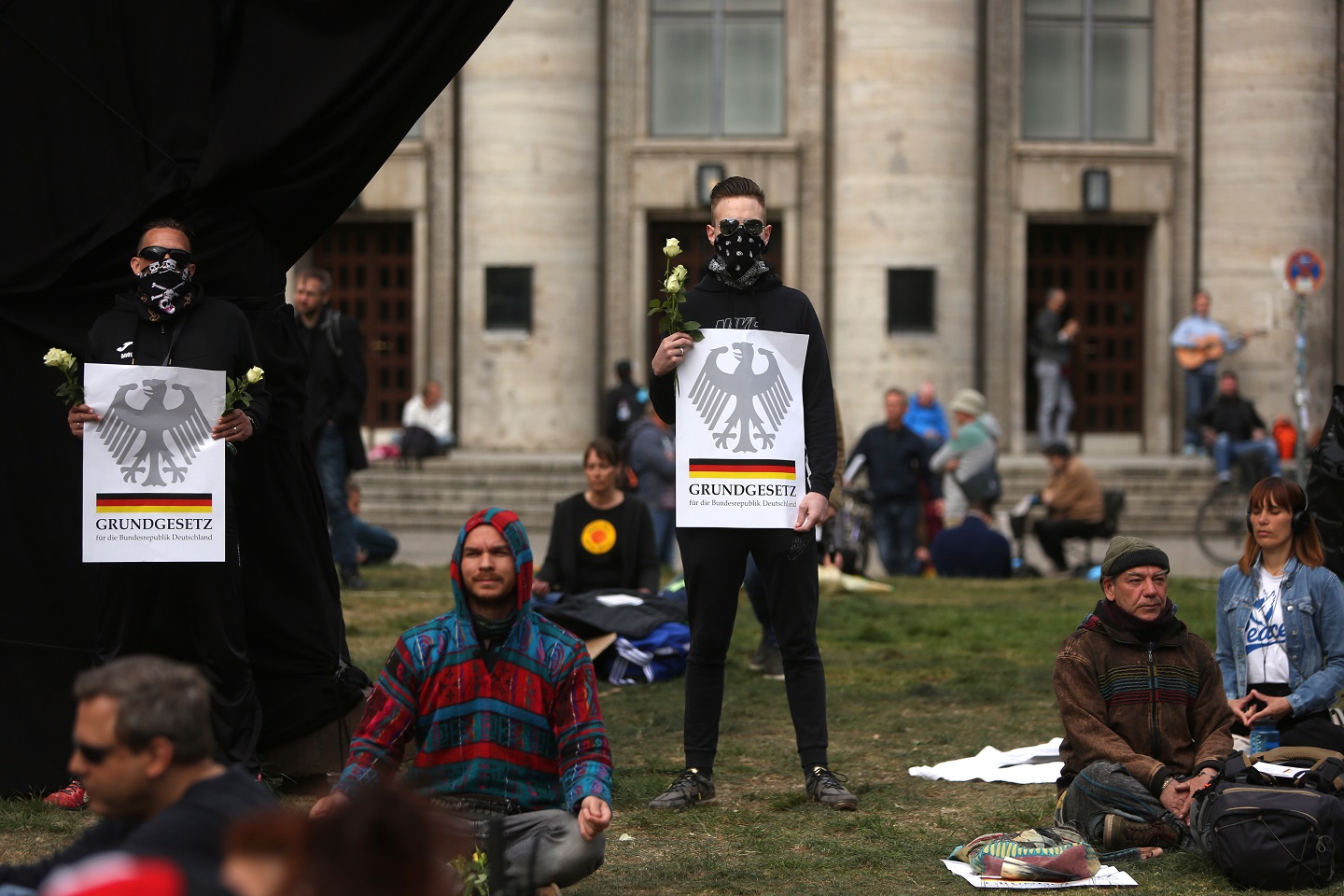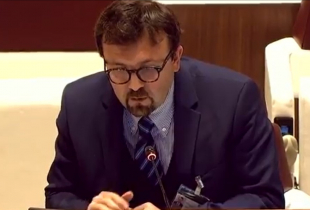
COVID-19: How to Implement a Lockdown in a Democratic Context
Executive Summary
- By the end of April 2020, more than 40,000 Bavarians had been infected by the novel coronavirus disease (COVID-19). Almost 2,000 people died. The Munich-based government had closed schools in mid-March. On March 24, 2020, the Bavarian ordinance mandating a temporary curfew took effect. It urges residents to reduce physical and social contact with persons other than members of their own household to an absolute minimum. Furthermore, it lists a variety of localities and businesses that were to be closed.
- This paper elaborates the legal parameters that had to be taken into account when launching a set of norms that severely limits constitutional rights. It will also shed light on the relationship between federal and state powers in Germany when it comes to maintaining public health. This paper also discusses how these restrictions affect various basic rights and how legal requirements challenge legislators, executive organs, and the judiciary.
- The Bavarian government’s ordinances were the product of considerable effort to satisfy basic constitutional requirements. In terms of clarity and precision, prohibitions were formulated, but also conditions under which exemptions may be granted. Through a sunset clause, the ministries stressed the temporary nature of the constraints on constitutional rights. Lastly, access to legal remedies is still granted. Citizens and companies have already started to challenge these constraints. Democracy and the rule of law do not seem to be endangered, yet.
Introduction
The coronavirus crisis has affected Bavaria and its thirteen million inhabitants just as it has affected many other European regions and countries. In the German context, COVID-19 was first identified in the Free State of Bavaria, one of sixteen federal states (Länder). On January 27, 2020, an employee of an automobile components supplier based south of Munich was tested positive for the virus. He caught the virus from a Chinese national who had come to Germany for training.1 A combination of factors (the societal and business interactions in the entire alpine region, as well as the proximity to northern Italy and the Tyrolean ski resorts) then caused COVID-19 to rapidly spread throughout the entire Freistaat. By end of April, more than 40,000 had been infected by the virus, also known as Sars-CoV-2. Almost 2,000 people died. Bavaria became the German state with the highest number of infected inhabitants and the highest death toll. Already on March 16, 2020, the Bavarian government closed all schools and announced a catastrophic situation (Katastrophenfall).2 A week later, the State Ministry of Health and Care enacted the “Bavarian ordinance mandating a temporary curfew due to the Corona pandemic.”3 The ordinance foresees a number of measures to enforce what has come to be called social distancing.
The Bavarian case is not only remarkable because it introduced far-reaching measures to fight the spread of the virus earlier than other German states. The measures were also perceived to be more rigid than others that have been introduced. And last but not least, the media has portrayed the Bavarian Head of State, Dr. Markus Söder, as the de facto German crisis manager who introduced effective instruments in a decisive and timely fashion. Thus, Munich appeared to be pioneers in the German fight against the coronavirus.4
This paper shall elaborate the legal parameters that had to be taken into account when launching a set of norms that severely limits constitutional rights. In the seventy years of post-World War II Germany and modern Bavaria, no governmental instruments have ever curtailed civic and human rights to the extent that the newly-introduced acts to fight COVID-19 do. For this reason, this article will shed light on the relationship between federal and state powers when it comes to maintaining public health. It will then turn to basic rights and how the new restrictions affect these rights. Before concluding, the paper will examine how legal requirements challenge legislators, executive organs, and the judiciary in further protecting public health and how the impact of the coronavirus crisis can be mitigated.
This study does not intend to hold up Bavaria’s management and its legal toolbox as a model. Instead, it intends to elaborate on the legality of the instruments employed. Given the impact of these restrictions on every resident of Bavaria (but also of Germany), only a legal and non-abusive use of state measures will make the fight against the virus legitimate.

Federal Powers vs. State Powers
To outsiders, the battle against the virus appears to be a country-wide effort directed by the Federal Chancellery and the Ministry of Health and its sub-ordinate Robert Koch-Institut, the central public health institution responsible for identifying, preventing, and combating diseases.5 To some extent, the Federal Foreign Office is in the international spotlight when it comes to travel restrictions, evacuation operations of German and EU citizens, or transferring critical patients to relieve the burden on Italian and French hospitals.6 External observers may also have noted the Federal Ministry of Finance’s efforts to launch a 156 million Euro assistance package to protect people’s health, to safeguard jobs, to support companies, and to maintain social cohesion.7 While it is clear that travel restrictions, EU affairs, or federal treasury matters fall within the competence of the Federation (Bund), public health does not. Health falls under the jurisdiction of Germany’s sixteen states, die Länder.8 Due to its federal structure, Germany has sixteen separate ministries of health, sixteen parliaments, sixteen constitutions, sixteen law enforcement agencies, sixteen judiciaries, and sixteen different sets of laws governing public health issues.
As a general principle, the German Constitution (the Grundgesetz or Basic Law) rules in Article 30, which addresses the Sovereign Powers of the Länder, that the exercise of state powers and the discharge of state functions is a matter for the Länder if not otherwise provided or permitted. When it comes to federal legislation and legislative procedures, Article 70, which addresses the division of powers between the federal government and the states, applies. It reads: “The Länder shall have the right to legislate insofar as this Basic Law does not confer legislative power on the Federation.” Article 74 then lists matters that fall under what is called concurrent legislative powers. Paragraph 1, No. 19 states that measures to combat human diseases that pose a danger to the public fall under concurrent legislative powers. Based on this provision, the Berlin-based Federal Parliament enacted the German Infection Protection Act (Infektionsschutzgesetz, IfSG) in 2000 (at that time reacting to the HIV virus). This blocked the Länder from drafting their own Infection Protection Acts. However, in accordance with the above-mentioned Article 30 of the Basic Law, the exercise of state powers remains with the Länder. In regard to the matter at hand, this means that the federal states may implement the necessary measures to protect the population through Health Offices at the local level.
Not surprisingly, the outbreak of the coronavirus sparked a discussion about competing Bund-Land competencies.
Mr. Spahn hinted that he regretted the inability to apply a uniform approach to tackle the virus as had been advised by expert virologists.9 Right after Munich implemented assertive steps, Dr. Merkel used her authority to arrange regular video conferences with all sixteen Heads of State and their respective Ministers of Health to coordinate German-wide measures. The very nature of a pandemic—ignoring as it does physical or administrative borders—played into the hands of those who would like to see more power in the hands of the federal government, thus a stronger “Berlin,” whereas those who emphasize regional idiosyncrasies argue that power should remain with the states, where challenges can best be addressed at the local level.10
Nonetheless, the Bavarian Government did not (openly) challenge the concurrent legislative powers of the federal level when it enacted its measures. The acts introduced cite the federal legislation and previous Bavarian acts. The chosen legal form of the acts are mostly decrees, i.e. they were issued by governmental authorities as executive orders without being debated by parliament.

The Bavarian Legal Toolbox
The Bavarian ordinance mandating a temporary curfew from March 24, 2020 in its amended versions, dating from March 27, 202011 and March 31, 2020,12 urge residents to reduce physical and social contacts with persons other than members of their own household to an absolute minimum (Bayerische Infektionsschutzmaßnahmenverordnung – BayIfSMV). Wherever possible, a minimum distance of 1.5 meters must be maintained between two persons. Furthermore, it rescinds the right to assemble and to hold religious services in churches, synagogues, and mosques. It goes on to prohibit all sorts of businesses that have not been identified as of “daily necessity.” It lists a variety of localities and businesses such as museums, movie theaters, zoos, hotels, bars, restaurants, and discotheques as well as saunas, spas, gyms, casinos, and brothels, which are all to be closed. The ordinance also prohibits any retail sales. Exceptions to the rule are pharmacies, drug stores, supermarkets, gas stations, post offices, opticians, and the like. Online trade is explicitly mentioned as being exempt from the prohibition.
The BayIfSMV also enumerates a number of facilities which may not be entered; these include hospitals, preventive care/rehabilitation facilities, inpatient nursing care facilities, facilities for persons with disabilities, sheltered housing groups and retirement homes, as well as nursing homes. The decree then explains in Article 1, paragraphs 5 and 6 when a person is allowed to leave one’s own home. This is permitted only for good reasons. These good reasons are enumerated and include going to work; obtaining medical or veterinary care; running errands for daily necessities; visiting life partners, the elderly, the sick or people with disabilities (not in institutions); exercising child custody in the private domain; accompanying persons in need of assistance and minors; tending to the dying; attending funerals within the immediate family; and sports in the open air alone or with members of one's own household. Finally, the ordinance empowers the police to enforce adherence to the curfew. It states that the police may check persons. The person concerned must then be able to show that he or she has good reason to be out in accordance with Article 1, paragraph 6.
In order to ensure compliance with the above-mentioned regulation, the Bavarian Ministry of the Interior and the Ministry of Health issued a catalogue of fines (Bußgeldkatalog „Corona-Pandemie“).13 It only lists offences. This indicates that breaches of the curfew are categorized as administrative offences and not as crimes in accordance with the German Penal Code. The Bußgeldkatalog states, for instance, that anyone who leaves his or her home without good reason must pay 150 Euros in fines. Caterers or organizers of an assembly must pay fines of 5,000 Euro. Persons who illegally enter a hospital will be fined 500 Euro.
In practice, COVID-19 and the above-mentioned rules drove roughly every fourth employee into telework. Employees in essential sectors remained at work under re-arranged physical distance circumstances. Small businesses were hit especially hard; many entrepreneurs were forced to terminate operations altogether. Since mid-March 2020, the average resident complains about the general prohibition to leave home and to interact with others and is hoping for a quick return to the days when he could enjoy freedom of movement, personal freedom, and the right to assemble peacefully. And even the larger economic enterprises complain that the lockdown has affected supply chains and caused a decline in overall consumer behavior. Considering that Bavaria hosts global industrial heavyweights such as BMW, Siemens, Bosch, Adidas, Audi, etc. and contributes 18 % to Germany’s GDP, Munich’s government was most likely aware of the economic consequences these restrictions would have. So, which rights were affected by the restrictions imposed? And, what legal barriers had to be overcome to limit a range of freedoms granted by the constitution?

Constitutional Rights
Article 20, paragraph 3 of Germany’s Basic Law stipulates “The legislature shall be bound by the constitutional order, the executive and the judiciary by law and justice.” This provision is the very foundation of the rule of law principle in the Federal Republic of Germany. It means that any legislator or executive organ, regardless of whether it be at the Bund or Länder (or even municipal) level, must adhere to codified law and/or non-written principles.14 Amongst these principles are the predictability of state action, proportionality, the enacting of clear and distinct laws, and non-arbitrariness. Basically, Article 20, paragraph 3 and its further interpretations through constitutional case-law mirrors the four universal principles defining the rule of law as set forth by the World Justice Report (accountability of government under the law; clear, publicized, and stable laws evenly applied and protecting fundamental rights; processes by which laws are enacted, administered, and enforced are accessible, fair, and efficient; and timely delivery of justice is to be rendered by competent, ethical, neutral, and independent representatives.)15 As far as the protection of fundamental rights is concerned, the Bavarian (along with all the other federal states’) regulations do violate a variety of civic and human rights granted to citizens and inhabitants of other nationalities residing in Germany.16
As set forth in the BayIfSMV ordinance, the curfew limits people’s ability to physically interact with others publicly, but partly also in private. Hence, the curfew violates, first and foremost, a person’s right to freely develop his personality and the right of free assembly (Article 2 of the Basic Law and its equivalent in Article 101 of the Bavarian Constitution regarding the fulfillment of the personality).
Since the curfew also prohibits religious services, it impacts the right to practice one’s faith, freedom of conscience, and freedom to profess a religious or philosophical creed according to Article 3 of the German Constitution (which corresponds to Article 107 of the Constitution of the Free State of Bavaria on freedom of faith, conscience and creed). Furthermore, since schools and universities are closed, the right to education (Article 7 of the Grundgesetz and Article 128 of the Verfassung des Freistaates Bayern) is also impinged upon.
Rescinding the right to assemble is politically very sensitive. Article 8 of the Basic Law reads: “All Germans shall have the right to assemble peacefully and unarmed without prior notification or permission.” Article 113 of the Bavarian Constitution has the same wording, almost verbatim. Mindful of demonstrations for higher wages, Fridays for Future, rallies for or against migration, Germans—just like their fellow EU citizens—make frequent use of this right. Constitutional Court decisions, academic jurisprudence literature, but also European leaders themselves have frequently underlined the importance of this civic right in a functioning democracy.
Depending on the federal state, Länder parliaments have also restricted freedom of movement.17 In an unprecedented way, this constitutional right has been partially rescinded in Germany. At the height of the coronavirus, some federal states even sealed off their interstate borders vis-à-vis neighboring German federal states. For instance, Schleswig-Holstein closed its borders to keep tourists from Hamburg, Berlin, or Lower Saxony from its Baltic and North Sea shores. This also triggered an angry debate over whether people with a second residence in Schleswig-Holstein could access their homes. Owners of these residences argued that they would be denied their constitutional right to make use of their own private property as it is granted in the Basic Law and in all German constitutions. Property rights became also a hot topic when the media reported an alleged dispute over the manufacturing rights of a German-based company that was developing vaccines. In order to prevent the company’s ownership and production capabilities from changing to foreign hands, suggestions were made that the pharmaceutical firm in question should be nationalized (which, de lege lata, would have been feasible). Similar debates emerged in the context of mask-producing factories or manufacturers of respirators.
Assessing retail closures, coronavirus-related restrictions also touch upon the basic right to choose one’s occupation, which is granted by the constitution. This right is set forth in the above-cited Article 109 of the Bavarian Constitution and in Article 12 of the Grundgesetz: “All Germans shall have the right to freely choose their occupation or profession.” Generally, this is also understood to be the right to practice an occupation.
All these freedoms and rights are granted under caveats. Caveats are usually directly formulated in constitutions. For example: “insofar as the rights of others are not violated,” or, in the case of the right to property “Property entails obligations. Its use shall also serve the public good.” In most cases, formulations like “these rights shall find their limits in the provisions of general laws” are used. In this respect, the curfew decree follows the latter pattern. Although not a law in the strict legal sense, the ordinance refers to the federal Protection against Infection Law, Section 32, sentence 1.
Constitutional entitlements that were not touched upon are also noteworthy. Neither Berlin nor any Landesregierung attempted to restrict freedom of expression, the arts, or the sciences. No effort was made to muzzle the media or interfere in the privacy of correspondence or postal and telecommunications. The latter is another very sensitive issue in Germany, given Germany’s difficult Third Reich and East-German legacies. So far, widely-discussed Chinese or even South-Korean techniques of GSM-tracking to control the spread of the virus could not be copied for historical, but also constitutional reasons. Nevertheless, Germany did develop such an app for smartphones. It was, however, made clear from the very beginning that data would be transferred anonymously and that participation would be voluntary. Now, the core constitutional principle determining the legality of the COVID-19-related decrees and respective enforcement acts deserves further elaboration.

The Principle of Proportionality
The principle of proportionality is often misunderstood as weighing competing public values. In fact, a constitutional consideration of the proportionality principle is more complex. In the case of curfew restrictions, it applies to all measures foreseen in the ordinance per se (closures, prohibited access to facilities, etc.). And it applies to subsequent implementing actions by executive organs (i.e. breaking up groups of more than three persons in a park or issuing an administrative fine for illegally running a catering business.)18
The first legal requirement is that the legislator outlines the public aim the restrictions have been introduced to achieve. As far as the Bavarian ordinance is concerned, the aim is not clearly defined in a preamble or in any of the pursuant provisions. However, if a norm does not specify the aim, the aim can be interpreted from the context. In the matter under consideration, the title of the ordinance and the clauses detailing various means of social distancing lead to the interpretation that the government intended to maintain public health (and ultimately save residents’ lives) through physical distancing and to halt the further spread of the coronavirus. Additional motives can be derived from the Head of State’s press conference announcing the curfew. Just as virologists and politicians at the federal level did, Mr. Söder emphasized the fact that the infection curve needed to flatten out in order to protect citizens and prevent hospitals from becoming overwhelmed.
The second requirement for a measure to be proportional is that it must be adequate to achieve the aim. This requirement does not attempt to evaluate a particular measure chosen by a public authority. This precondition requires legislators and executive organs to employ an instrument that can achieve the intended aim. In the matter at hand, the federal government followed the experts’ advice suggesting that distancing prevents the virus from spreading further.
Quite a sophisticated precondition is the one that requires measures to pass a necessity threshold. In other words, authorities must show that there were no milder means of abridging civic rights. This precondition has launched a nation-wide debate about whether restrictions could be lifted for most people while remaining in effect for vulnerable groups (as far as age, pre-existing health conditions, and the like).
Lastly, any state intervention is legal if it is “proportional in the narrower sense” as German jurists would phrase it (Verhältnismäßigkeit im engeren Sinne.)19 This threshold requires an assessment of the impact of the public intervention on the rights of individuals on the one hand and the gravity of the public interest and the aim justifying the restrictions on the other. For instance, the restrictions on shop owners sharply abridge their right to earn a living and, in many cases, their property rights. One can easily imagine that many smaller caterers, restaurant owners, and shop owners could be driven into bankruptcy by the restrictions. Hence, the aim of the public interest must be of highest value. As described above, the authorities argue that the restrictions are based on the maintenance of public health (sometimes speaking of “life or death”).
At the same time, governments want to keep the number of newly COVID-19-infected individuals down to avert overwhelming the intensive care units of hospitals. These measures are an attempt to limit the number of corona patients needing respirators. German policy-makers are trying to prevent the need for triage, which would burden medical personnel with making determinations about the priority of patients’ treatments based on the likelihood of recovery with and without treatment. The decision to introduce a curfew therefore not only serves the purpose of keeping the public health system intact. It can also be interpreted as a mean of relieving physicians of the obligation to make decisions about who receives treatment and who dies (which would lay the groundwork for a kind of Selektion). In this regard, current and potential patients in need of respirators could claim that the state must uphold Germany’s most sacred basic right (Article 1 of the Basic Law: “Human dignity shall be inviolable. To respect and protect it shall be the duty of all state authority.”)20 Henceforth, one could argue that the public aim to restrict this basic right is preeminent.
A final point that needs to be addressed here is the fact that neither the Federal Republic of Germany nor any of its states declared a state of emergency (martial law) at any time during the corona-crisis. This would have been difficult under both the Basic Law and the Bavarian Constitution anyway since they only mention emergency situations with regard to domestic political turmoil or borrowing additional funds. Nevertheless, the European Convention on Human Rights would have allowed it. According to Article 4:
German authorities, however, limited themselves to only announcing a catastrophic situation (“Katastrophenfall”), a tool which makes it easier for governing institutions to access assets in times of need (i.e. police, or logistical support by the Armed Forces).
Conclusion
It remains to be seen whether the COVID-19 pandemic will alter the Bund – Länder catalogue of competencies. Federalists argue that the current situation, with sixteen different sets of restrictions, creates a multi-faceted mosaic that citizens do not understand. Provincial leaders underline the fact that the pandemic affects different regions differently. Bavaria’s proximity to Italy and its role in global economic connectivity constitutes a difference, for instance, in comparison to Thuringia, which plays a lesser role when it comes to globalization. At the moment, it appears that the old Bund-Länder rivalry is likely to continue in post-corona times.
Without doubt, a wave of lawsuits will hit the administrative courts. This might happen when individuals file a complaint against administrative actions by executive organs (breaking up of an assembly or issuance of a fine), but it would also be possible under German Law (especially in Bavaria, see Article 120: “Every resident […] who feels that his constitutional rights have been violated by an Administrative Body is entitled to call upon the protection of the Bavarian Constitutional Court’) in a suit questioning the legality of the ordinance per se.
There have already been a few court cases, but the decisions of the courts have varied. A citizen sued to force the state to allow churches to open on Easter, arguing that the Bavarian government could not decide to re-open home improvement markets while limiting people’s right to practice their religion. Munich’s Administrative Court ruled against the resident. Nevertheless, in consideration of the aforementioned criteria, the court also asked why individual exceptional permits were not considered as a possible solution.21 The Greifswald-based Mecklenburg-Pomeranian High Administrative Court, on the other hand, ruled that state authorities had to grant its residents access to its islands and beaches.22 It did not, however, question the state’s right to prohibit access to its shores by citizens from other German states. The Federal Constitutional Court joined the jurisdiction questioning the legality of how the restrictions are applied.23 It criticized the city of Giessen for its decision to prohibit a demonstration. According to the court, the city did not make any effort to evaluate how a protest could be carried out in detail. A demonstration must be possible if protesters take physical distancing precautions.
At this stage, it is safe to say that the ordinances crafted by the Bavarian government were a considerable effort to satisfy basic constitutional requirements. The original ordinance, its amendments, and its accompanying catalogue of fines refer specifically to higher Bavarian and federal laws formulated to maintain public health. In terms of clarity and precision, Munich’s legal staff not only formulated prohibitions, but also conditions under which exemptions may be granted. Through a sunset clause, the ministries stressed the temporary nature of constitutional rights’ constraints. It thus gave itself enough flexibility to be able to fine-tune the restrictions in the course of the crisis. And last but not least, access to legal remedies remains intact, allowing citizens and companies to challenge its provisions, as well as its implementing instructions.
Recent polls reveal that 89 % of Bavarian residents are either very or fairly satisfied with Munich’s crisis-management.24 This seems to suggest that restrictions are perceived to be harsh, but necessary. Disputes about the duration and restrictiveness of the curfew will certainly continue. So far, a rising Leviathan perverting the constraints for abusive purposes is not in sight.
For Academic Citation
Sebastian von Munchow, “COVID-19: How to Implement a Lockdown in a Democratic Context,” Marshall Center Security Insight, no. 57 (April 2020): https://pre-prod.marshallcenter.org/en/publications/security-insights/covid-19-how-implement-lockdown-democratic-context-0.https://www.marshallcenter.org/en/
publications/security-insights/covid-19-how-implement-lockdown-democratic-context-0.
Notes
1 “Die Coronavirus-Pandemie in Bayern - die Monate Januar und Februar,” Süddeutsche Zeitung, February 29, 2020, https://www.sueddeutsche.de/bayern/coronavirus-bayern-rueckblick-januar-februar-1.4794769.
2 “Söder ruft Katastrophenfall aus,” zdfheute, March 16, 2020, https://www.zdf.de/nachrichten/politik/in-bayern-soeder-ruft-katastrophenfall-aus-100.html.
3 English text: Bavarian Ministerial Gazette, BayMBl. 2020, No. 130, March 24, 2020, https://www.stmi.bayern.de/assets/stmi/mui/integrationspolitik/rechverordnung_englisch.pdf.
4 “Super-Söder versus Machtlos-Müller,” Zeit, March 21, 2020, https://www.zeit.de/politik/deutschland/2020-03/krisenmanagement-markus-soeder-michael-mueller-csu-spd.
5 Why Germany has been so successful in dealing with the coronavirus,” CNBC, Closing Bell, April 13, 2020, https://www.cnbc.com/video/2020/04/13/why-germany-has-been-so-successful-in-dealing-with-the-coronavirus.html.
6 “Warum Deutschland italienische Patienten aufnimmt,” Der Spiegel, March 27, 2020, https://www.spiegel.de/panorama/gesellschaft/coronavirus-warum-deutschland-italienische-patienten-aufnimmt-a-95d09775-2cc7-4f8f-a8a8-ce74cd031baa.
7 “156 Milliarden gegen die Corona-Krise,” Tagesschau, March 25, 2020, https://www.tagesschau.de/inland/bundestag-corona-hilfspaket-nachtragshaushalt-101.html.
8 Zur Frage der Gesetzgebungskompetenz des Bundes für den Öffentlichen Gesundheitsdienst, Deutscher Bundestag, Wissenschaftliche Dienste, WD 9 - 3000 - 043/19, July 31, 2019, https://www.bundestag.de/resource/blob/657236/c82ba2db1cd763e2f46439828d73c4e0/WD-9-043-19-pdf-data.pdf.
9 “Inside Germany’s Piecemeal Response to Corona,” Der Spiegel, March 13, 2020, https://www.spiegel.de/international/germany/inside-germany-s-piecemeal-response-to-corona-a-f376b3f9-625f-4a6a-8e7d-04bd48be20b2.
10 “Der Föderalismus kann eine Waffe sein,” Süddeutsche Zeitung, March 11, 2020, https://www.sueddeutsche.de/politik/corona-foederalismus-1.4840253.
11 German text: Bavarian Ministerial Gazette 2020, BayMBl. 2020, No. 158, March 27, 2020, https://www.gesetze-bayern.de/Content/Document/Y-300-Z-BECKRS-B-2020-N-6760?hl=true.
12 German text: Bavarian Ministerial Gazette 2020, BayMBl. 2020 No. 162, March 31, 2020, https://www.verkuendung-bayern.de/baymbl/2020-162/.
13 German text: Bavarian Ministerial Gazette, BayMBl. No. 173, April 3, 2020, https://www.verkuendung-bayern.de/files/baymbl/2020/173/baymbl-2020-173.pdf.
14 Peter Schade, Grundgesetz mit Kommentierung (Regensburg: Walhalla Fachverlag, 2000), 5th ed., p. 81 et seq.
15 World Justice Report, Rule of Law Index 2020, https://worldjusticeproject.org/.
16 See similar debate in the United States: “Barr to prosecutors: Look for unconstitutional virus rules,” AP News, April 28, 2020, https://apnews.com/c76e764141179075244ecfd5f1bb5e19.
17 See Article 109: “All residents of Bavaria have the right to move freely. They are entitled to settle and reside in any place, to acquire land and to follow any occupation.” See also Article 11 of the Basic Law: “All Germans shall have the right to move freely throughout the federal territory.”
18 Volkmar Götz, Allgemeines Polizei- und Ordnungsrecht (Göttingen: Vandenhoeck & Ruprecht, 1991), 10th ed., p. 28 et seq.] Steffen Detterbeck, Allgemeines Verwaltungsrecht (München, C.H.Beck), 2002, p. 65 et seq.
19 Steffen Detterbeck, Allgemeines Verwaltungsrecht (München, C.H.Beck), 2002, p. 65 et seq.
20 Dieter Hesselberger, Das Grundgesetz (Bonn, Bundeszentrale fuer politische Bildung), 12th ed., 2001, p. 61-72.
21 “Gottesdienste bleiben in Coronakrise verboten,” Der Spiegel, April 9, 2020, https://www.spiegel.de/panorama/justiz/corona-krise-gottesdienste-mit-besuchern-bleiben-verboten-a-90c124f6-2277-4cb0-82d6-5a229359b5d1.
22 “Corona: Gericht kippt Oster-Reisebeschränkungen in MV,” NDR, April 9, 2020, https://www.ndr.de/nachrichten/mecklenburg-vorpommern/Corona-Gericht-kippt-Oster-Reisebeschraenkungen-in-MV,coronavirus1324.html.
23 “Kein generelles Demonstrationsverbot,” Tagesschau, April 16, 2020, https://www.tagesschau.de/inland/corona-demonstrationsrecht-101.html.
24 “94 Prozent der Bayern in der Corona-Krise zufrieden mit Söder, BR24, April 8, 2020, https://www.br.de/nachrichten/bayern/94-prozent-der-bayern-in-der-corona-krise-zufrieden-mit-soeder,RvZ7A6z.
About the Author
Sebastian von Münchow is a member of the faculty at the George C. Marshall European Center for Security Studies, where he specializes in international and European law. Dr. von Münchow studied law at the Free University of Berlin, the Université de Lausanne and the Christian-Albrechts-University Kiel. After earning his Master of Law, he passed the bar exam in Berlin. He earned his doctorate in International Relations at the University of Vienna. His thesis focused on the United Nation mission in Cambodia as a case study for multilateral engagements in post conflict peace-building. Dr. von Münchow then worked for the field missions of the Organization for Security and Co-operation in Europe in Bosnia and Herzegovina, as well as in Kosovo where he led the legislative reform section. Between 2003 and 2005, he led various initiatives within the so-called Working Table 3 in the Office of the Brussels-based Special Coordinator of the Stability Pact for South East Europe. He has also served in the Police Assistance Mission of the European Union in Tirana. In 2006, Dr. von Münchow returned to Germany and worked for several years in the Federal Chancellery in Berlin before joining the Marshall Center in 2012. His areas of expertise include parliamentary oversight; rule of law; intelligence in the context of security sector reform; and transition efforts in Southeast Europe.
The Marshall Center Security Insights
The George C. Marshall European Center for Security Studies in Garmisch-Partenkirchen, Germany, a German-American partnership, is committed to creating and enhancing worldwide networks to address global and regional security challenges. The Marshall Center offers fifteen resident programs designed to promote peaceful, whole of government approaches to address today’s most pressing security challenges. Since its creation in 1992, the Marshall Center’s alumni network has grown to include over 14,000 professionals from 156 countries. More information on the Marshall Center can be found online at www.marshallcenter.org.
The articles in the Security Insights series reflect the views of the authors and are not necessarily the official policy of the United States, Germany, or any other governments.

